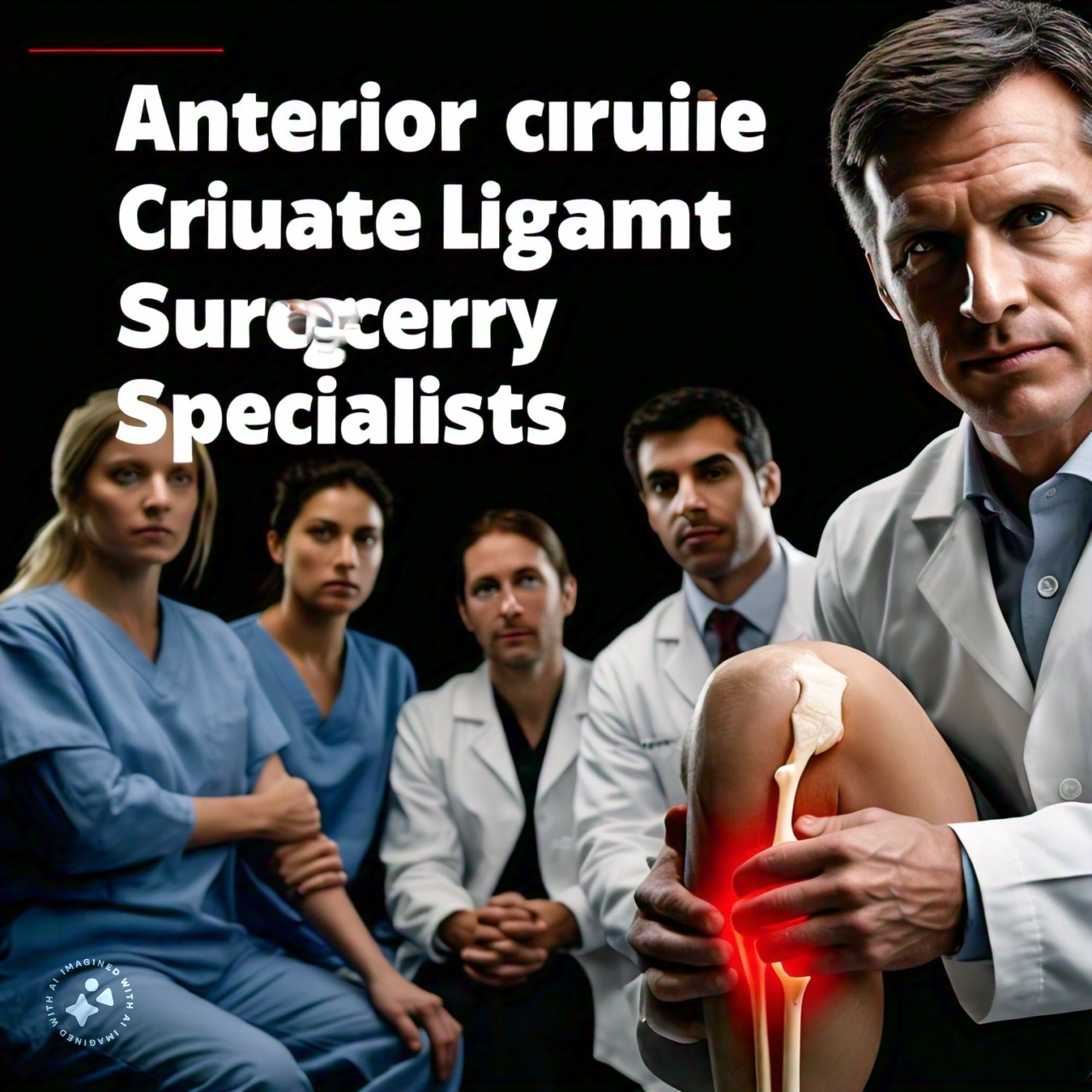The knee joint, a complex structure of bones, ligaments, and muscles, bears the brunt of our weight and movement. The anterior cruciate ligament (ACL) plays a starring role in maintaining knee stability among its crucial ligaments. A torn ACL, a common knee injury, particularly in athletes, can significantly impact mobility and function. If you’ve sustained an ACL tear, seeking the expertise of an Anterior Cruciate Ligament Surgery Specialist becomes paramount in regaining stability and returning to your active lifestyle.
Understanding the ACL and Its Significance
The ACL resides deep within the knee joint, diagonally connecting the thigh bone (femur) to the shinbone (tibia). This vital ligament is a primary stabilizer, preventing the tibia from sliding forward excessively during movements like pivoting or jumping. An ACL tear, often caused by sudden twisting or hyperextension of the knee, can lead to instability, pain, swelling, and difficulty performing everyday activities.
Why Consult an Anterior Cruciate Ligament Surgery Specialist?
While non-surgical treatment options exist for mild ACL tears, a complete tear typically necessitates surgery for optimal recovery. Anterior Cruciate Ligament Surgery Specialists are fellowship-trained orthopedic surgeons with extensive experience in ACL reconstruction procedures. They possess in-depth knowledge of the knee anatomy and the latest surgical techniques to restore ACL function and stability.
What to Expect from an Anterior Cruciate Ligament Surgery Specialist
During your initial consultation, the Anterior Cruciate Ligament Surgery Specialist will conduct a comprehensive evaluation, including a physical examination, a review of your medical history, and potential imaging tests like MRI scans. This assessment allows the specialist to determine the severity of the tear, assess any associated injuries, and discuss the most suitable treatment plan.
ACL Reconstruction Surgery: The Process
ACL reconstruction surgery typically involves replacing the torn ligament with a graft, a tissue used to bridge the gap and recreate the ACL. The graft can be sourced from your hamstring, patellar tendon, or a cadaver. Anterior Cruciate Ligament Surgery Specialists are skilled in performing minimally invasive arthroscopic techniques, minimizing damage to surrounding tissues, and promoting faster recovery.
Rehabilitation and Recovery After ACL Surgery
Following surgery, a dedicated rehabilitation program under the guidance of a physical therapist is crucial. The rehabilitation program, overseen by the Anterior Cruciate Ligament Surgery Specialist, focuses on regaining strength, flexibility, and range of motion in the knee. This comprehensive approach ensures a safe and triumphant return to your desired activity level.
Finding the Right Anterior Cruciate Ligament Surgery Specialist
When choosing an Anterior Cruciate Ligament Surgery Specialist, consider factors like their experience with ACL reconstruction, surgical techniques employed, and patient outcomes. Researching patient reviews and qualifications can also be beneficial. At HipKneeOrtho, our highly skilled Anterior Cruciate Ligament Surgery Specialists are dedicated to providing patients personalized care and utilizing the latest advancements in ACL reconstruction surgery to get you back on your feet.
Additional Considerations for ACL Surgery and Recovery
While the core information has been covered, here are some additional points to consider for a more comprehensive patient understanding:
-
Pre-operative Optimization: The Anterior Cruciate Ligament Surgery Specialist may recommend optimizing your overall health before surgery. This could involve strengthening the muscles around the knee joint, improving flexibility, and achieving a healthy weight to facilitate a smoother recovery process.
-
Surgical Technique Options: Anterior Cruciate Ligament Surgery Specialists are adept in various surgical techniques for ACL reconstruction. The chosen approach depends on factors like the severity of the tear, the graft source, and the patient’s anatomy. Some standard techniques include single-bundle and double-bundle reconstruction, each offering advantages for specific situations. Discussing these options with your Anterior Cruciate Ligament Surgery Specialist is crucial for determining the most suitable approach for you.
-
Pain Management: Effective pain management is a priority after ACL surgery. The Anterior Cruciate Ligament Surgery Specialist will prescribe medications and recommend pain management strategies like icing and elevation to minimize discomfort and promote healing.
-
Potential Risks and Complications: Although uncommon, ACL reconstruction carries potential risks. These can include infection, bleeding, blood clots, and stiffness in the knee joint. An Anterior Cruciate Ligament Surgery Specialist will discuss these risks thoroughly during the consultation and take measures to minimize their occurrence.
-
Recovery Timeline: Recovery from ACL reconstruction surgery is a gradual process. While individual timelines may vary, it typically takes six to nine months to regain full strength, stability, and range of motion in the knee. The dedication and commitment you invest in physical therapy play a significant role in achieving a successful outcome.
Conclusion
An ACL tear can be a daunting setback, but with the expertise of an Anterior Cruciate Ligament Surgery Specialist, a full recovery and return to your active lifestyle are achievable. HipKneeOrtho offers comprehensive ACL treatment plans, from diagnosis to rehabilitation, to help you regain knee stability and function.
FAQs
-
What are the benefits of consulting an Anterior Cruciate Ligament Surgery Specialist?
Anterior Cruciate Ligament Surgery Specialists possess specialized training and experience in ACL reconstruction, leading to improved surgical outcomes and faster recovery times.
-
Does everyone with an ACL tear need surgery?
Not necessarily. The surgery decision depends on the tear’s severity, your activity level, and other factors. An Anterior Cruciate Ligament Surgery Specialist will guide you through the best course of treatment.
